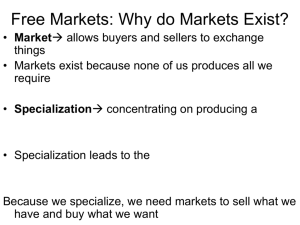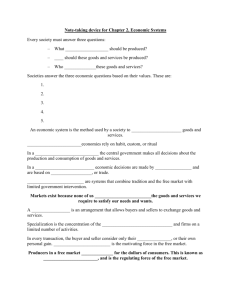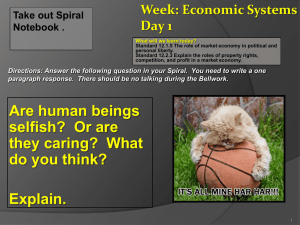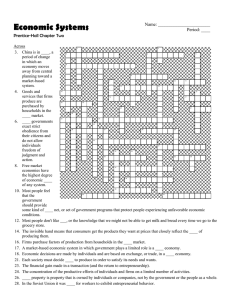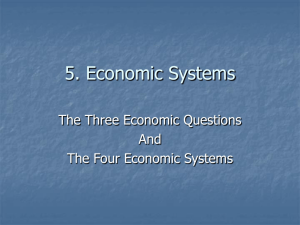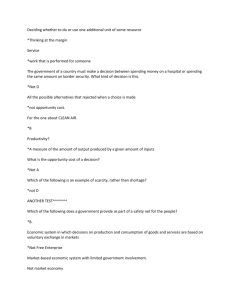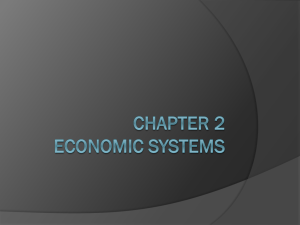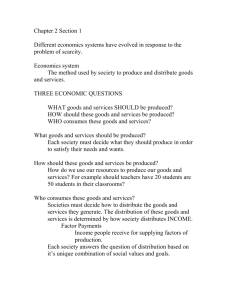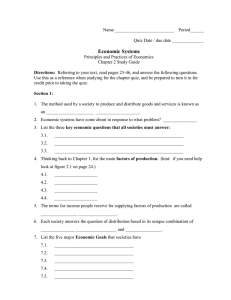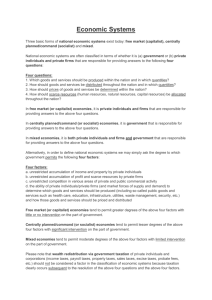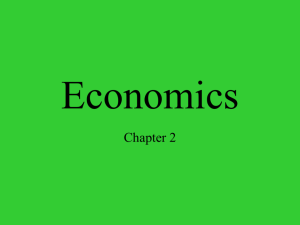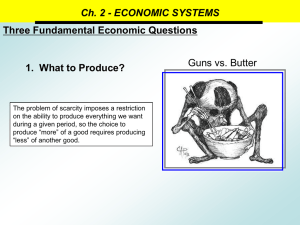CHAPTER 2 ECONOMIC SYSTEMS
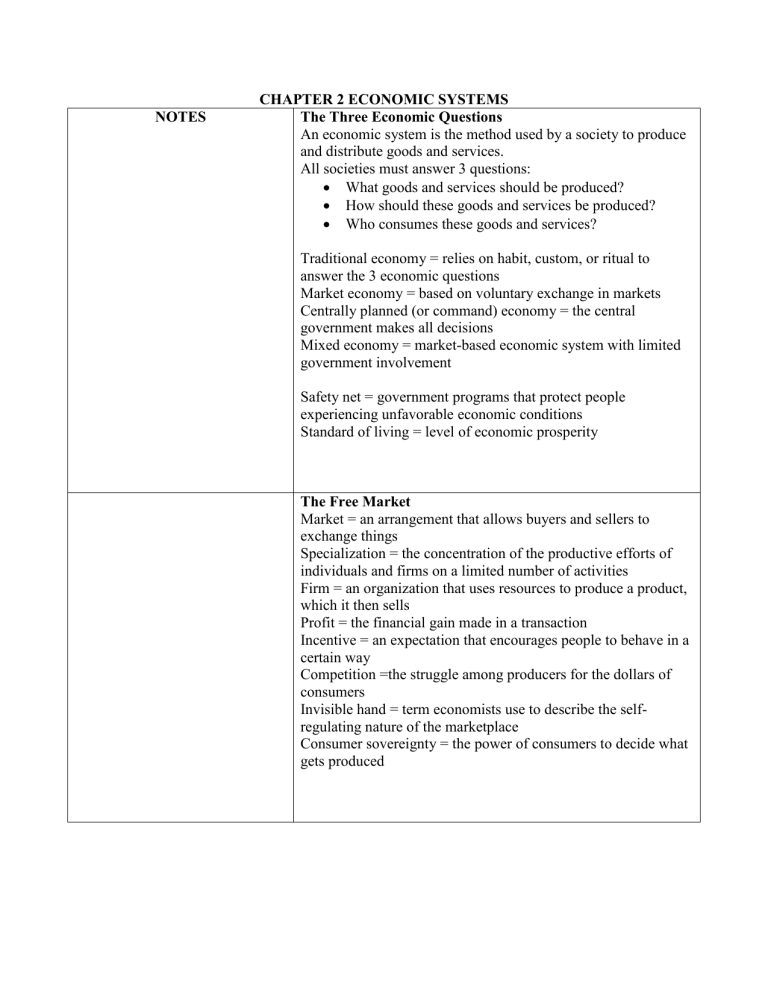
NOTES
CHAPTER 2 ECONOMIC SYSTEMS
The Three Economic Questions
An economic system is the method used by a society to produce and distribute goods and services.
All societies must answer 3 questions:
What goods and services should be produced?
How should these goods and services be produced?
Who consumes these goods and services?
Traditional economy = relies on habit, custom, or ritual to answer the 3 economic questions
Market economy = based on voluntary exchange in markets
Centrally planned (or command) economy = the central government makes all decisions
Mixed economy = market-based economic system with limited government involvement
Safety net = government programs that protect people experiencing unfavorable economic conditions
Standard of living = level of economic prosperity
The Free Market
Market = an arrangement that allows buyers and sellers to exchange things
Specialization = the concentration of the productive efforts of individuals and firms on a limited number of activities
Firm = an organization that uses resources to produce a product, which it then sells
Profit = the financial gain made in a transaction
Incentive = an expectation that encourages people to behave in a certain way
Competition =the struggle among producers for the dollars of consumers
Invisible hand = term economists use to describe the selfregulating nature of the marketplace
Consumer sovereignty = the power of consumers to decide what gets produced
Centrally Planned Economies
Socialism = a social and political philosophy based on the belief that democratic means should be used to evenly distribute wealth throughout a society
Communism = a political system characterized by a centrally planned economy with all economic and political power resting in the hands of the central government
Authoritarian = requiring strict obedience to an authority, such as a dictator
Collective = large farm leased from the state to groups of peasant farmers
Heavy industry = industry that requires a large capital investment and that produces items used in other industries
Modern Economies
Laissez faire = the doctrine that states that government generally should not intervene in the marketplace
Private property = property owned by individuals or companies, not by the government or the people as a whole
Free enterprise = an economic system characterized by private or corporate ownership of capital goods; investments that are determined by private decisions rather than by state control; and determined in a free market
Continuum = a range with no clear divisions
Transition = period of change in which an economy moves away from a centrally planned economy toward a market-based economy
Privatize = to sell state-run firms to individuals
